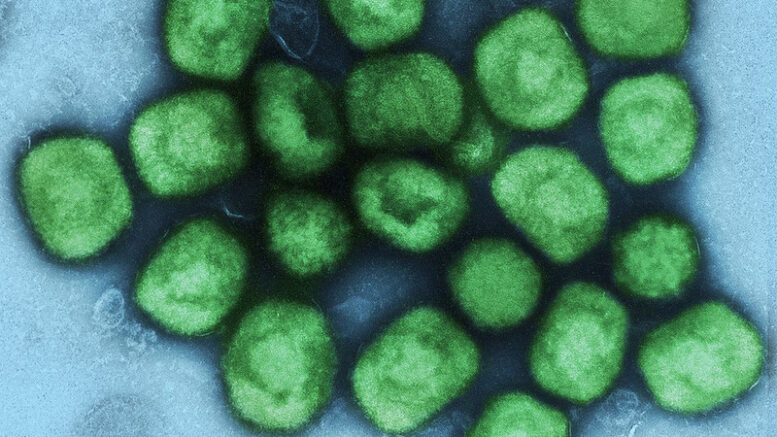The course of Mpox (formerly referred to as monkeypox) can be severe, researchers say. The aim of the study by Gaertner et al. (2023) was to retrospectively compare the risk of hospital admission, the need for ventilation, sepsis, pneumonitis and death between the recent outbreak and historical outbreaks.
Cases of Mpox were retrieved from the TriNetX database and assigned to either cohort I (recent outbreak between May 1 and September 16, 2022) and cohort II (historical outbreaks before May 1, 2022). After matching for age distribution, statistical analysis was performed.
Of 640 patients with Mpox, 81 subjects per cohort remained after matching (mean age±standard deviation = 36.1±18.3 years). Within 56 days after diagnosis 10 patients per cohort were hospitalized (12.4%) and/or developed sepsis (12.4%). The risk of ventilation and pneumonitis were significantly lower among cohort I compared with cohort II (0 vs. 10 cases; risk difference = 12.4%; p = 0.001; Log-Rank test). No cases of death were recorded.
The researchers conclude that even though Mpox provides a risk of severe courses, the infection is self-limiting in most cases. Unlike past outbreaks, the risk of ventilation and pneumonitis may be relatively low among recent outbreaks.
Reference: Gaertner F, et al. Comparison of the risk of hospital admission, need for ventilation, sepsis, pneumonitis and death among the recent monkeypox outbreak and historical outbreaks. BMC Infectious Diseases. Vol. 23, article number 610 (2023).
